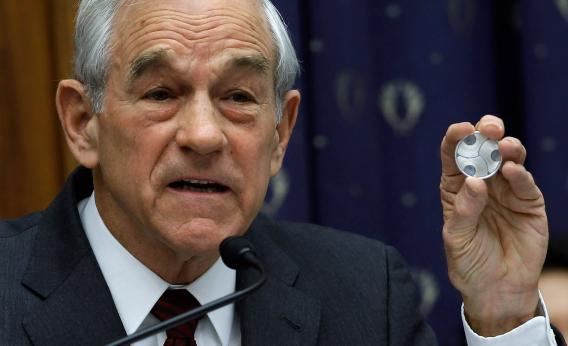Is Ron Paul’s presidential campaign running low on money? All signs point to “yes.” The campaign isn’t bottoming out, and it’s not taking on debt. But it’s not the cash-rich Mule* that tromped through all of 2008’s primaries.
According to the campaign’s February FEC statement – its last monthly update – it had $1,644,814.60 in the bank after spending $5,233,011.28 in the packed primary month of January. Four years ago, Paul had $6,017,400.79 left in the account at the end of January.
This, in itself, is not a sign of Paulian weakness. Ask any veteran of the 2008 Paul campaign, and they’ll tell you that the late surge of moneybombs and media interest came too late to build a strong campaign where they needed one. That wasn’t a problem this time. The money came in briskly throughout 2011. But it hasn’t been gushing like it used to. A January “moneybomb” netted the campaign $1.3 million; a moneybomb at the same point in the 2008 race brought in $1.85 million.
“Our fundraising remains very strong,” says campaign chairman Jesse Benton, “and we are banking money for later primaries in Texas and California.”
So why am I singling it out as a problem? Because 2012 isn’t 2008. Four years ago 22 states held primaries or caucuses on Super Tuesday; by March, Mike Huckabee was out of the race, leaving a sort of showdown between McCain and Paul. The congressman from Texas, ignored by most of the media, racked up votes, and some delegates, and provided just a little bit of the momentum that took him into the September 2008 convention that started his “Campaign for Liberty.”
By comparison, 2012 is an old-fashioned slog. The caucuses are over; expensive primaries in New York and California are coming next month and in two months. And Paul’s ability to spin gold out of straw has faded, as he’s proven unable to pip Romney or Santorum in the caucuses – Maine, North Dakota, Hawaii – that supporters thought he could win. The much-discussed, Peter Thiel-funded Paul Super PAC Endorse Liberty has prodouced some attractive web videos, but it hasn’t had the resuscitating power of the pro-Santorum Red, White and Blue Fund.
This doesn’t mean Paul will drop out. It does bolster the decision, by networks, to stop embedding with Paul’s campaign. Two months ago he was whistle-stopping through Iowa in a small plane. Now he’s doing mega-rallies and town halls when he can, but not many of them.
*explanation here
